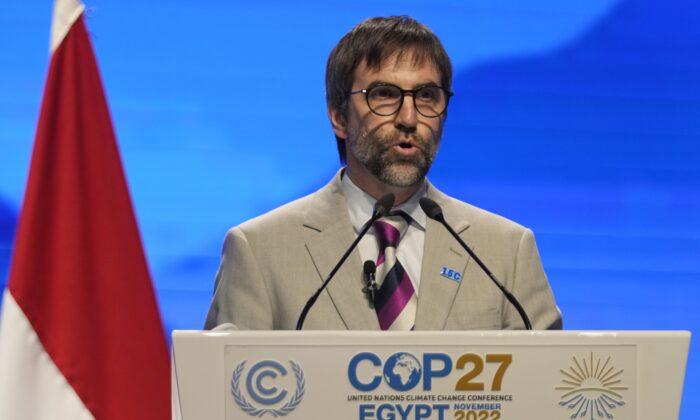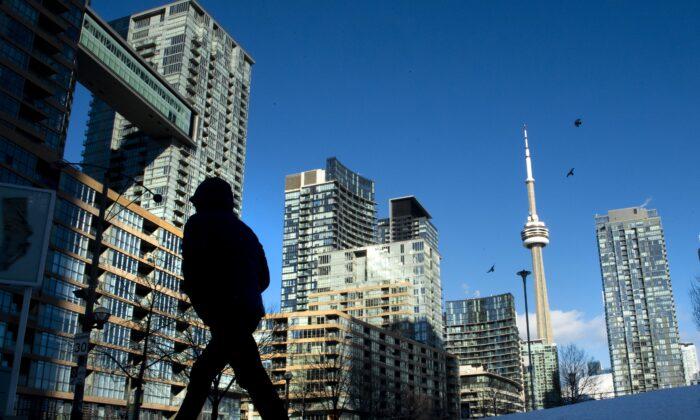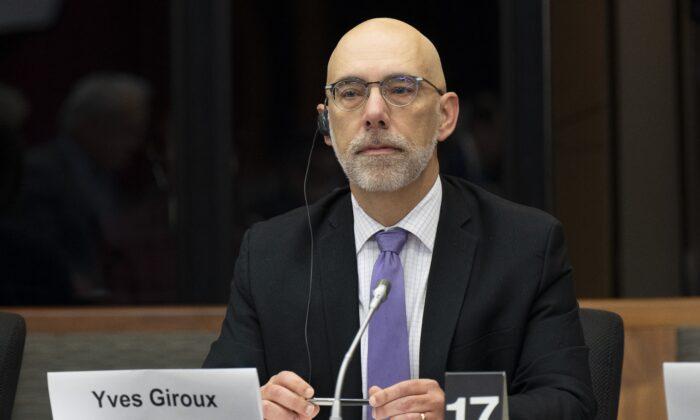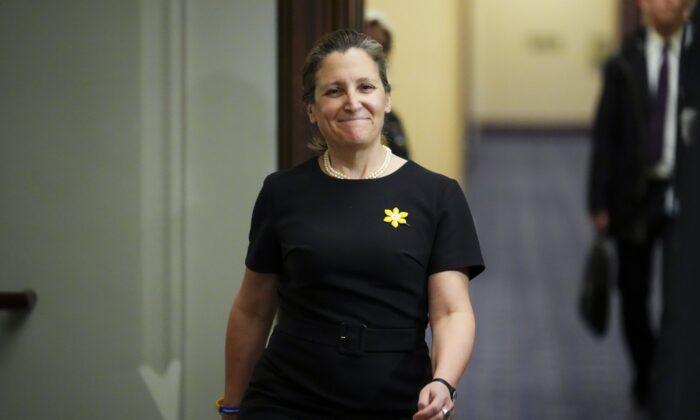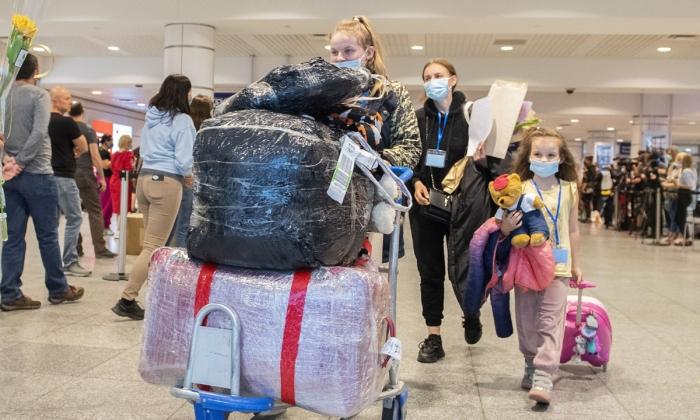Canada has made “real progress” in meeting emissions reduction targets outlined by the United Nations Framework Convention on Climate Change (UNFCCC), says Environment Minister Steven Guilbeault, while opposition parties say the Liberal government has yet to meet any of its federal climate goals.
Statistics put forward by ECCC in the report say that carbon dioxide is the largest contributor to Canada’s total greenhouse gas emissions, accounting for about 80 percent.
The report says Canada emitted around 800 million tonnes of carbon dioxide equivalent in 2015 and just under 600 million in 2017. The number stayed steady in 2019 before dropping to just under 500 million tonnes as of 2022.
Guilbeault said Environment Canada’s 2019 biennial report to the UNFCCC projected Canada would reduce its emissions by 227 million tonnes compared to the 2015 biennial report.
“I am happy to state that the 2022 report shows that Canada is on track to reduce another 97 million tonnes by 2030, in addition to the 227 million tonne reduction projected from the 2015 report,” he said in the statement.
The report adds that 82 percent of Canada’s electricity is produced from zero-emission sources, such as hydropower.
“The Prime Minister hasn’t gotten serious on climate change. He has a tax plan, not a climate plan, that has raised money for his government but it’s not reduced emissions or hit targets,” Poilievre said in the House of Commons on Oct. 5
“His carbon tax has not hit a single, solitary emissions reduction target—it has not worked,” he added.
NDP MP Blake Desjarlais said in the House on Dec. 2 that he “and many Canadians have a serious lack of trust in the emissions plans,” referencing an audit in April by Environment Commissioner Jerry DeMarco that pointed out a number of ways that the federal government’s plan to reach net-zero GHG emissions by 2050 is falling short.
The commissioner’s audit said the National Defence Department, which is responsible for the most emissions out of any federal department, has released “no clear information” to show how it will contribute to the country’s overall emissions reduction targets.
Emissions Reduction Targets
Guilbeault said that the drop in emissions is due to new federal measures adopted since the 2019 biennial report, while also acknowledging that the COVID-19 pandemic presented “public health and economic challenges” in the meantime.“Canada’s commitment to reduce emissions by 40 percent by 2030 remain not only within reach, but realistic,” he said, adding that Ottawa is “well positioned to reach our emissions reductions goals.”
The ECCC’s recent biennial report projects Canada’s carbon dioxide equivalent emissions to drop to 491 million tonnes per year by 2030.
“Canada also became the first country to commit to reducing methane emissions in the oil and gas sector by at least 75 percent below 2012 levels by 2030,” Guilbeault said in his statement.
Guilbeault also announced in November 2022 a cap on GHGs from Canada’s oil and gas sector, which will be implemented this year.
